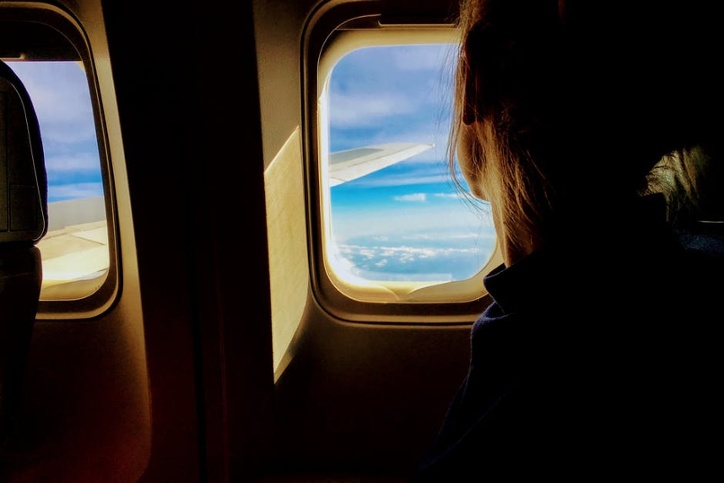12 Mar Beyond the Highlight Reel: Creating a Meaningful Experience Abroad

Whether you’re going abroad for the first time or you’re no stranger to travel, everyone departs on their journey with the same thing in mind: “How do I make the most of the time I have?” No matter if you have hours to explore a destination or years to discover its nuances, you want to assure yourself that you’re getting the full experience. Here are 8 pieces of advice for making the most of your time, ensuring it will not only be fun and memorable, but transformational as well.
1. Do some background research before you go.
Take some time to learn about the history, culture, political climate, and economic climate of the place (or places) you’ll be visiting. Make an effort to learn key phrases in the language(s) spoken, so that you will feel more comfortable conversing with the local people. Check out this helpful article on How to Learn the Basics of Any Language for Your Next Trip in Four Steps. Not only will this ease some of your worries about venturing into a new place, but it can also add a whole new layer of meaning to each of your experiences. Sightseeing is great on its own, but imagine wandering through the winding streets and craning your neck to see the incredible architecture of a city and knowing its unique story of that city. Think about what has remained the same and what has changed over the years and why. Having some background of the past grounds you in the place you are staying and enables you to stay present in your travels.
2. Minimize the social media.
This step is key for getting the most from your time abroad. It is tempting to want to add our every footstep to our Snapchat story, pinpoint every place we’ve stopped on the ‘Gram’, and update our Facebook photos daily when we’re surrounded by all things beautiful, new, and exciting. This often takes us out of the moment we are in, turning us more and more into digital curators rather than travelers of the world. Staying conscious of how you are using your time and cutting down on your social media usage is really a win/win – the risk of FOMO from seeing your friend’s pictures back home is greatly decreased, and you are more in-the-moment.
Tip: Instead of solely relying on social media, try documenting your experience in a different way, like journaling, blogging, or vlogging. Find a medium you feel comfortable working in, and then consistently write or speak about everything you do. This includes the good, the bad, and the ugly. Unlike your personal profiles, this is your behind-the-scenes, the chance to be candid about your thoughts, feelings, and experiences without judgment or editing. Not only can this help you process negative emotions and situations, but it will help you look back on your time abroad in a holistic and realistic way. There is no one-size-fits-all way to keep track of your time abroad, but make sure that you do. A picture may be worth a thousand words, but a picture can’t describe the buttery-sweet taste of traditional cake during a summer solstice celebration or the feeling of accomplishment when you successfully navigate the metro by yourself for the first time. When I go back to my journal and re-read my entries, it transports me back to that time and allows me to live in that moment again and again (more than any picture ever could).
3. Keep an open mind.
We tend to live and associate with people of similar backgrounds to ourselves. Going abroad shifts our worldview and thrusts us into new environments with new people, but it is important to remember not to equate “new” and “different” with “bad” and “other.” By keeping an open mind about people, practices, and places and respecting the fact that things may be done differently compared to where you’re from, you will allow yourself to experience more, connect with people on a deeper level, and expand your consciousness and awareness of the world around you. There will inevitably be some differences you really enjoy and some that make you long for home, but take all of it in as part of the exploration of the full spectrum of being human.
4. Delight in the discomfort.
Faced with navigating a different country without your typical routine (and potentially lacking the necessary language skills to communicate effectively), it can be hard to put yourself out there and stray beyond the safety and comfort of your “home base,” but it is essential that you do so. This doesn’t necessarily have to be something drastic – even small steps like ordering your morning coffee in the local language or asking a stranger for directions can be beneficial and give you the confidence you need to take more risks. Get involved in the community. Whether it’s going out and mingling with locals at restaurants, joining clubs at your university (if you’re studying abroad), or participating in organized culture exchanges, challenge yourself to do something you aren’t immediately comfortable with.
Life isn’t perfect, and travel won’t be either. Don’t be afraid to make mistakes when it comes to language or cultural practices, because it will help you learn. I remember asking a convenience store owner in Barcelona if he had change for a €50 note and using the word for “food”, comida, instead of the word for “change”, cambio (can you tell I didn’t know any Spanish prior to my arrival?). We were able to laugh about my mistake as he gave me an impromptu vocabulary lesson, and now I know I’ll never confuse the two again. Getting out of your comfort zone can be messy and embarrassing and awkward, but accepting that and getting out of a perfectionist mindset enables you to grow.

5. Make each day count.
It’s true what they say – time flies. Don’t put everything off, thinking that you’ll have plenty of time to do everything on your bucket list, because you’ll soon realize that there will never be enough hours in the day to eat at every restaurant, see every famous spot, and get enough sleep to make it all possible. Take advantage of the opportunities that are presented to you, and try to say “yes” more than you say “no.” Need help finding more ways to optimize your time abroad? Read 15 Experts Share Their Best Travel Advice. You can never be sure when you’ll get the chance to do something again, and the last thing you want to do is leave a place with wistful regrets of What Could Have Been. That being said…
6. Recognize that less is often more.
Embark on your trip with realistic expectations, and realize that you can’t do everything. It can be helpful to create a budget and schedule time for a few things you know you just HAVE to do, but always leave room for spontaneity. You don’t want to find yourself booked from the second you step off the plane to the second you get back on with no room to squeeze in a lunch date with a new friend or take a last-minute weekend trip to a nearby town that interests you. Pace yourself, and truly enjoy every day. Focus on practicing mindfulness in your decisions and interactions. Take some time to slow down and really absorb everything using all of your senses. Sometimes a day spent people-watching at a local café can be more rewarding and educational than a day of cramming as many sights into your schedule as possible. Don’t sacrifice authentic moments of connection and insight to satisfy some arbitrary checklist.
7. Don’t neglect rest and self care.
Travel is supposed to be something life-changing, the time of your life, an unforgettable experience, and it can be. But people tend to gloss over the exhaustion, the frustration, and the confusion that come hand-in-hand with every seemingly picture perfect moment. We take ourselves wherever we go. Just because you are abroad doesn’t mean you’ll develop a travel persona who is constantly happy, confident, and ready to take on the world 24/7. As fantastic as your travel destinations may be, homesickness is natural. When it happens, give your family, friends, or significant other a call and then recall why you wanted to go abroad in the first place, to push yourself forward when it gets especially tough. Take some time to yourself if you need to. Between taking everything in, managing your time, not getting lost, and focusing on your safety, travel forces us to be “on” most of the time. There’s nothing wrong with taking some time to relax and focus on your health and wellbeing. The typical travel routine can be put on the backburner for a day (just make sure it’s not everyday).
8. Extend your trip into life back home.
The memories you made abroad might have been made thousands of miles away, but the impact of those experiences can still be influential in your life wherever you are. Some people experience a post-abroad sadness – a longing for the new places, people, food, and activities they were acquainted with during their trip – but it is important to remember that your time traveling doesn’t (and shouldn’t) exist in a bubble. Stay in touch with people you met abroad, and continue to cultivate these friendships. Tell your friends and family about your personal stories and what you have learned to foster a better level of understanding between cultures.
We must remember that the opportunities we encounter abroad don’t just cease to exist back home, they simply aren’t as obviously recognizable in our routines. Use what you’ve learned while abroad, and bring that mindset into your daily life. By being mindful of yourself and your surroundings, challenging yourself to continuously expand your comfort zone, and living in a way that is intentional and compassionate, you can create the same experience in your hometown and maybe even begin to view it with new eyes and a greater appreciation.
Written by Alexandra Vietor



No Comments